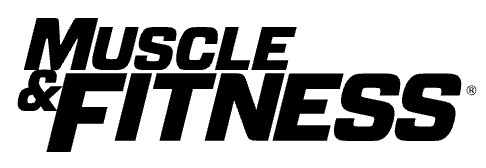Getting Visual With Jeff Moyer
I first met Jeff Moyer of DC Sports Training during double sessions of our freshman year of football at Hartwick College. We were both too tall, too skinny and too naive to even know that we looked like human popsicles. Both of us played early, became pals and worked out together through our time in school.I like to think I have been exposed to a variety of different training philosophy’s through the years. From circuits and Olympic style splits in college to power lifting influenced methods to 1×20, I have a pretty solid grasp of what is out there in terms of improving young athletes. Jeff makes me look as green as my father in laws lawn. He has picked Louie Simmons (godfather of modern power lifting) brain at Westside Barbell, written for major sports performance publications (elitefts, CVASPS), skypes with arguably the greatest strength coach ever (Anatoliy Bondarchuk) corresponds with arguably the greatest track coach ever (Henk Kraaijenhof) is a protoge of sports biomechanist Dr. Michael Yessis and still finds time to bust my chops when I do something questionable with one of my athletes ;).
You may have heard the phrase “leave no stone unturned” in seeking knowledge. Jeff will figuratively blow up a mountain to make some more stones to turn over. I think the guy has read more books in the past year than most will in a lifetime. Recently, he has sunk his teeth into the field of sports vision and is doing some pretty incredible stuff with his athletes. Since this sub genre of sports performance is still new to many coaches, parents and athletes I thought it would be cool if I could get him to sit down and answer a few questions on the topic.
Brian– Tell us a little about yourself and what you do.
Jeff– I am the owner of a training facility called Dynamic Correspondence Sports Training, that is located in Pittsburgh PA.
B– You hear the term sports vision thrown around a lot, what does this phrase mean to you?

The eyes do a lot!
J– The term “sports vision training” to me is synonymous with term “strength and conditioning.” Both resemble only a part of what we do and what an athlete needs and what we do as coaches. Vision is about the input side of how an athlete perceives whats going on. To me what “sports vision” really is about, is understanding the athletes input side and how it affects the athletes output. Their movements and actions on the field / court. We aren’t necessarily trying to just improve the athletes visual skills, but rather teach them how to better use the ones they already have.
B-You have a lot of fun looking toys that you use with your athletes for their vision training. Would you mind explaining a little about what they are and why you use them?
J-The toys that we have are just tools in the toolbox. They all serve a purpose but not all of them will fix every issue that an athlete needs. Its important to state that because a lot of these technology companies claim that they can do everything. The fact of the matter is they are all just tools. But if you are a hammer, everything looks like a nail.
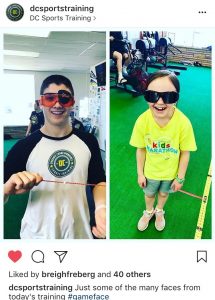
Visual training tools at DC training
So depending on what we are trying to work on, will use our FitLights as a visual stimulus to work on eye-hand, eye-foot reaction & coordination. We will also use the lights as a visual stimuli for motor learning if we are trying to work on some technical drills. We will also use the lights along with some numbered charts & or a ping pong machine to work on visual information process, reaction, identification and eye-hand coordination.
B– Can visual work be done daily? When would you recommend scheduling it in a training session and why?
J– It can! What is great about doing “visual work” is that it is not taxing on the athletes nervous system. So its great to do daily, while recovering from games/practice/training. Recovering from injury.
B– What are some common visual issues with many athletes?
J– Insufficient binocularity. Which means the inability for the athletes to focus and receive information from both eyes in order to create a 3D objects which in turn helps with depth perception (the ability to perceive the world in three-dimensions and to be able to determine distance and speed between objects).
Also the ability to control their eyes while they are thinking. Conscious thinking can effect eye control. You see this in a lot of athletes that either look up, down, or around while they are thinking. Some even go “consciously blind” while they are thinking. This means that they visual block out the information they are looking at to concentrate on whatever they are thinking about. For instance: how many of you have ever read a few pages of a book, but then forgot everything that you just read because you were mentally thinking about something else?
B– Can visual issues like tracking the ball be fixed? How?
J– Yes and no. Depends on the issues as to why they are having trouble tracking the ball. They can certainly be improved upon.
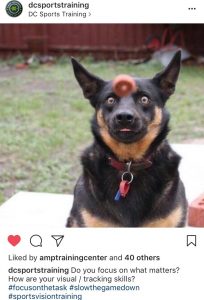
Focus!
A lot of times parents / coaches will tell an athlete to focus on the ball, but that doesn’t always improve tracking skills. So we can teach the athlete how to focus better.
B– Can you share any visual success stories you have had with your athletes?
J– All of our high school baseball and softball players average batting average is over 500. On base percentage of 800.
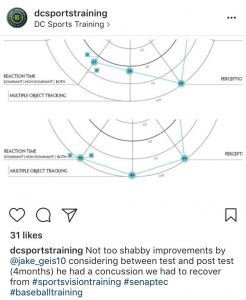
Visual improvement
B– Dr. Harrison and Slow The Game Down has been around for the better part of 40 years. With Coastal Carolina using their products and winning the College World Series last season do you think more folks will start trying their methods?
J– I believe that with everything that is going on with concussions in sports that vision – perception and action are going to be the avenues that coaches will begin to start looking for to improve their athletes performances. Also, if people just take a second to look at the results that Dr. Harrison and Slow the Game Down has had throughout the years…I mean their results speak for themselves.
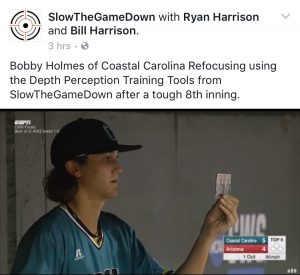
In game focus from an unlikely champion
